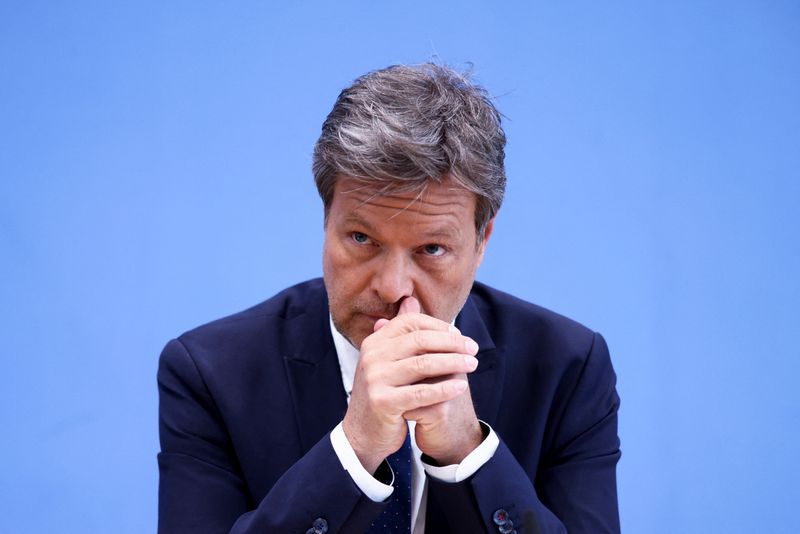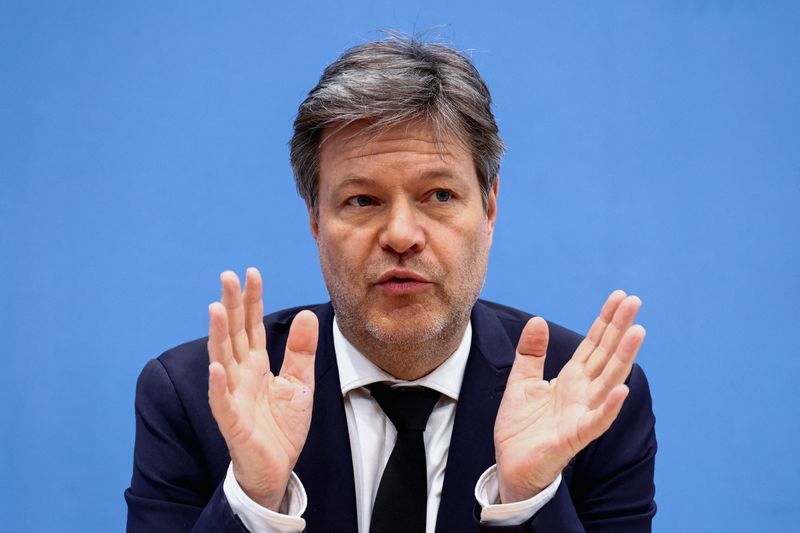BERLIN (Reuters) -Germany slightly raised its forecast for economic growth this year on Wednesday and eased its inflation outlook, but its economy and finance ministers said structural changes were needed to achieve real progress.
The forecast of 0.3% growth, from 0.2% previously, and the 0.4 percentage points cut to inflation expectations were part of the government's spring projections, which Economy Minister Robert Habeck presented on Wednesday and Reuters published exclusively last week.
"As the year progresses, we are now seeing signs of a slight economic upturn and that the economy is slowly emerging from its weak phase," Habeck said during the presentation in Berlin.
"Despite these signs of hope, I am still concerned about the structural problems of Germany as a business location," Habeck said. "If we want to achieve higher growth in the medium and longer term, we need structural changes," he said.
German Finance Minister Christian Lindner said the spring projections show a certain stabilisation.
"However, the urgency of an economic turnaround does not arise from the economic fluctuations, which are also influenced by short-term factors, but from the underlying medium-term path of potential growth," he said.
Lindner noted that potential growth is at 0.6%.
Although both ministers agree on the need for structural reforms, their proposals on how to foster growth differ, reflecting the difficulty of achieving consensus in the three-party coalition ruling Europe's largest economy.
Private consumption is expected to contribute significant growth momentum as real wages are expected to rise in a resilient labour market.
The German economy, Europe's biggest, was the weakest among its large euro zone peers last year, as high energy costs, feeble global orders and record high interest rates took their toll.
Although inflation is expected to ease this year, growth is forecast to remain relatively weak, with GDP only projected to grow by 1.0% in 2025.
PRICES FALL FASTER THAN EXPECTED
Habeck said prices had fallen more quickly than expected and inflation was forecast to be 2.4% this year, versus a previous projection of 2.8%. Inflation was at 5.9% last year, taking its toll on private consumption.
For 2025, the government sees inflation falling to 1.8%
"The great progress in combating inflation is encouraging," Lindner said. "The debt brake has proven itself as a brake on inflation."
Asked about the drivers of the cut in inflation forecasts, Elga Bartsch, economic policy director at the ministry, cited a noticeable decline in energy prices and also in food prices.
The European Central Bank monitors core inflation, which excludes the volatile prices of food and energy.

"We have a somewhat more stable picture, this is always the case with core inflation," Bartsch said. "This is currently above the headline inflation rate."
The German government forecasts core inflation at 2.8% this year and 1.9% next year.
